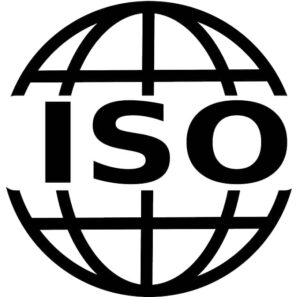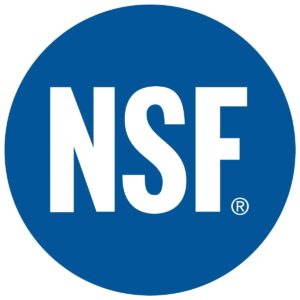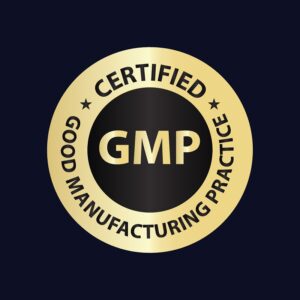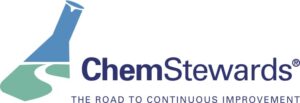The Most Important Certifications a Chemical Manufacturer Needs
- June 19, 2022
- Blog
History has provided enough examples of irresponsible chemical companies to demonstrate once and for all the need for strong oversight.
In one way or another, virtually everyone in the world has a vested interest in making sure chemical products are manufactured, handled, transported, and disposed of safely and ethically.
Certifications are a way to assure chemical customers and the public at large that this is the case with the companies that operate in their communities.
Why Are Certifications Important to the Customer?
The foundation of a strong manufacturer-customer relationship is the same as for any other kind of relationship: trust.
And while the internet has made it simple to find people and companies all over the world to do business with, it can be extremely difficult to verify the promises made on a website while a long distance away in the “real world.”
Certifications represent a non-biased way to get that proof customers need to build that trust and be comfortable engaging a particular contractor. Customers are looking for high quality, consistency, concern for workers and the environment, and other corporate characteristics that help them recognize whether or not a potential partner is credible and established.
Why Are Certifications Important to the Manufacturer?
Certifications are important to manufacturers both in and of themselves, and for the standards they represent.
Some companies may seek out certifications so they can check a box to do business in a certain region, or because they’re a good marketing tool. But this is missing the real point of certifications.
Certification requirements encourage (or force, if you will) a manufacturer to be better in virtually every respect:
- They help them be more efficient, more productive, and safer.
- They lead to a more knowledgeable and more motivated staff.
- They help them meet their own EHS goals.
- They promote better customer retention as they lead to high-quality final products.
It would be hard to quantify just how valuable all of these benefits are to a company over the long run.
Are Certifications Required?
Typically, certifications are not required by law, they’re used more as a way to meet or exceed the standards that the law prescribes. This is the case for all of the certifications we delve into below.
Important Certifications for Chemical Manufacturers
While there are many different certifications within the chemicals industry that apply to specific products or systems, the following are a few of the most common generalized certifications available:
ISO 9001:2015
- Certifying body: Any one of roughly 75-100 registrars that are members of International Accreditation Forum (IAF) and certified to ISO/IEC 17021:2015 (Conformity Assessment — Requirements for Bodies Providing Audit and Certification of Management Systems)
- What it certifies/standardizes: ISO 9001:2015 is the latest version of the globally recognized, widely applied certification of a company’s quality management system. Companies of all sizes across numerous industries use ISO 9001 because it’s a flexible standard that doesn’t mandate a specific set of QM procedures. Instead, it provides a framework for each company to ensure it is customer-focused, providing high-quality products, and getting appropriate buy-in from leadership on advancing QM objectives and continual improvement.

NSF
- Certifying body: National Sanitation Foundation
- What it certifies/standardizes: The NSF was founded in 1944 to promote food safety and sanitation to protect consumers, although its purview has expanded significantly since then to cover a wider variety of consumer products. Certification involves ongoing testing and inspections of both facilities and products to ensure the standards are met.
Chemical companies manufacturing products such as water treatment chemicals, pharmaceutical excipients, or chemical inhibitors might seek NSF certification.

GMP
- Certifying body: Independent third-party auditors such as UL, SGS, and ASQ
- What it certifies/standardizes: Companies that are regulated by the FDA must adhere to its current Good Manufacturing Practice (GMPs) in order to remain in compliance. GMPs “provide for systems that assure proper design, monitoring, and control of manufacturing processes and facilities,” particularly pharmaceutical manufacturers.
Because the government’s GMPs are minimum requirements, many chemical manufacturers elect to pursue separate GMP certifications from independent auditors so as to guarantee not only will they avoid regulatory violations, they’ll be offering consumers a high-quality product with a visible seal of approval. Individuals responsible for promoting good manufacturing practices within their companies can also obtain personal GMP certification if they choose.

ChemStewards
- Certifying body: SOCMA (Society of Chemical Manufacturers & Affiliates)
- What it certifies/standardizes: The ChemStewards Management System (CSMS) program is a three-step, three-year process of certifying SOCMA members’ facilities are improving in their environmental, health, safety, and security (EHS&S) performance. Improvement metrics are tracked annually and gathered via self-assessment (Year 1), management system document review (Year 2), and on-site audit and verification of any necessary countermeasures (Year 3).
Participating companies are judged based on factors such as energy usage, hazardous waste generation, OSHA reporting, and product stewardship.

Verifying Certification
There are several ways to verify whether a chemical manufacturer you’re conducting due diligence upon has a certification it claims.
A simple method is to ask them for a hard copy; it should be easy enough for them to provide. Some companies save you the trouble by displaying their certificates on their own websites, while some merely display the logos of their certifications but not the documents themselves.
Additionally, some auditors maintain online databases that you can search for yourself to see if a company’s certification is legitimate and up-to-date.
Seatex is Certified
We are proud to hold numerous certifications that testify to our dedication to premium quality and care for our customers.









